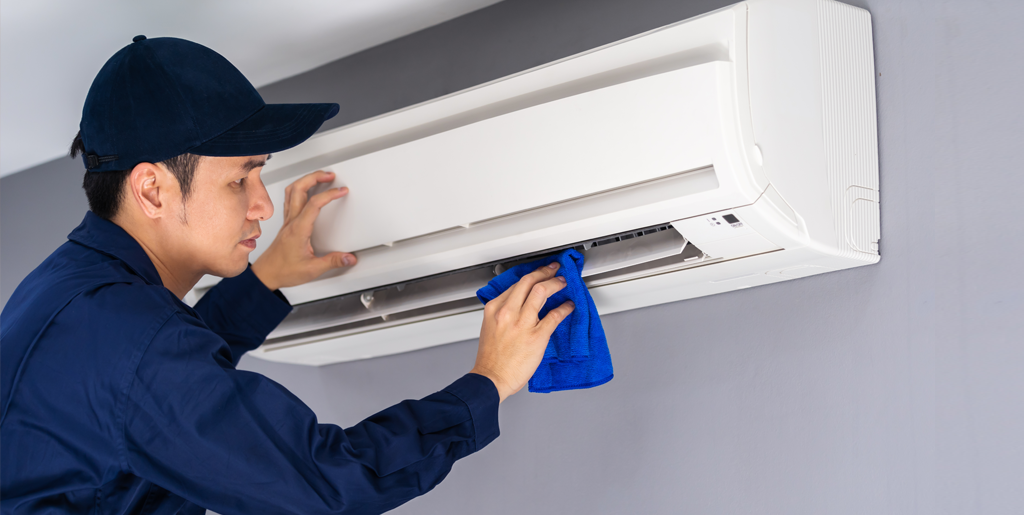As the sweltering heat of summer sets in, air conditioning becomes a welcome relief. While air conditioning provides comfort, it’s crucial to use it properly to prevent potential health issues. Improper usage, such as setting temperatures too low or neglecting maintenance, can lead to respiratory problems, dehydration, and other health concerns. In this comprehensive guide, we’ll explore the best practices for using air conditioning to keep your space cool while prioritizing your health.
Maintain Optimal Temperature Settings
Setting the thermostat at an optimal temperature is the first step in ensuring both comfort and health. The recommended temperature range for indoor spaces is generally between 75°F (24°C) and 78°F (26°C). Maintaining this range allows for a comfortable environment without subjecting your body to extreme temperature fluctuations. Setting the thermostat too low can lead to respiratory issues, including coughs and colds, and may strain the respiratory system over time.
Avoid Rapid Temperature Changes
While it might be tempting to crank up the air conditioning to its maximum capacity when you enter a warm room, rapid temperature changes can be harsh on the body. Sudden shifts from extreme heat to cold can lead to respiratory problems, headaches, and discomfort. Instead, gradually lower the temperature or use the “auto” setting on your air conditioner, allowing it to adjust gradually and maintain a more consistent climate.
Ensure Proper Ventilation
Proper ventilation is essential when using air conditioning to avoid health issues related to stale air and poor circulation. Ensure that windows and doors are closed when the air conditioner is running to prevent warm air from infiltrating. However, periodically allowing fresh air to circulate by opening windows and doors can help improve air quality. Additionally, use exhaust fans in kitchens and bathrooms to expel indoor pollutants and maintain a healthy indoor environment.
Regularly Clean and Replace Air Filters
Dirty and clogged air filters can significantly impact the efficiency of your air conditioning system and, more importantly, pose health risks. Dust, pollen, and other allergens can accumulate in the filters, leading to poor indoor air quality and aggravating respiratory conditions. Regularly clean or replace air filters according to the manufacturer’s recommendations to ensure your air conditioner functions optimally and promotes a healthier living space.
Maintain Humidity Levels
Balancing humidity levels is crucial for comfort and health. Excessive humidity can lead to a damp environment, promoting mold growth and increasing the risk of respiratory issues. Conversely, extremely low humidity levels can cause dry skin, irritated eyes, and respiratory discomfort. Use a dehumidifier if necessary, and keep indoor humidity levels between 30% and 50% to create a comfortable and health-friendly environment.
Stay Hydrated
Air conditioning can contribute to dehydration, as it tends to remove moisture from the air. To counteract this effect, stay well-hydrated by drinking an adequate amount of water throughout the day. Avoid excessive consumption of caffeinated or alcoholic beverages, as they can contribute to dehydration. If you experience dry skin, throat, or eyes, consider using a humidifier to add moisture to the indoor air and alleviate discomfort.
Take Regular Breaks from AC
Extended exposure to air conditioning without breaks can lead to health issues. It’s essential to allow your body to acclimate to natural temperatures periodically. Take short breaks from air conditioning, especially during milder weather, to expose yourself to fresh air and maintain a healthy balance. Consider setting your air conditioner to a higher temperature during the evening or when you’re away from home to give your body a break and save energy.
Utilize Fans to Supplement Cooling
Incorporating fans into your cooling strategy can be an effective way to enhance comfort and reduce the reliance on air conditioning. Ceiling fans and portable fans help circulate air, distribute cool air more evenly, and create a gentle breeze. Using fans in conjunction with air conditioning allows you to maintain a comfortable temperature without overworking your cooling system, promoting energy efficiency and optimal health.
Schedule Regular Maintenance
Proactive maintenance is vital to ensuring your air conditioning system operates efficiently and poses no health risks. Schedule regular professional maintenance checks to inspect and clean components, identify potential issues, and ensure optimal performance. A well-maintained air conditioner not only cools your space effectively but also contributes to better indoor air quality, reducing the risk of respiratory problems.
Be Mindful of Pre-existing Health Conditions
Individuals with pre-existing health conditions, such as respiratory issues or allergies, need to be particularly mindful of air conditioning usage. Consult with a healthcare professional to determine the best indoor climate for your specific health needs. Consider using air purifiers with HEPA filters to reduce allergens, and take extra precautions to maintain optimal indoor air quality.
As we strive to keep our living spaces cool and comfortable, it’s essential to use air conditioning wisely to avoid potential health issues. By maintaining optimal temperature settings, ensuring proper ventilation, and prioritizing indoor air quality through regular maintenance and smart usage, you can enjoy the benefits of air conditioning without compromising your well-being. With these guidelines, you can create a cool, comfortable, and healthy environment for yourself and your loved ones during the warm months.

